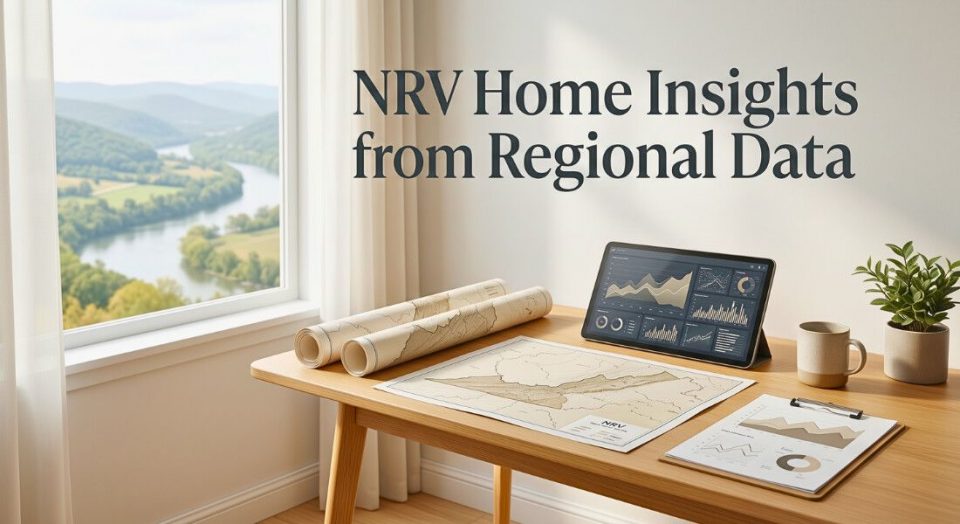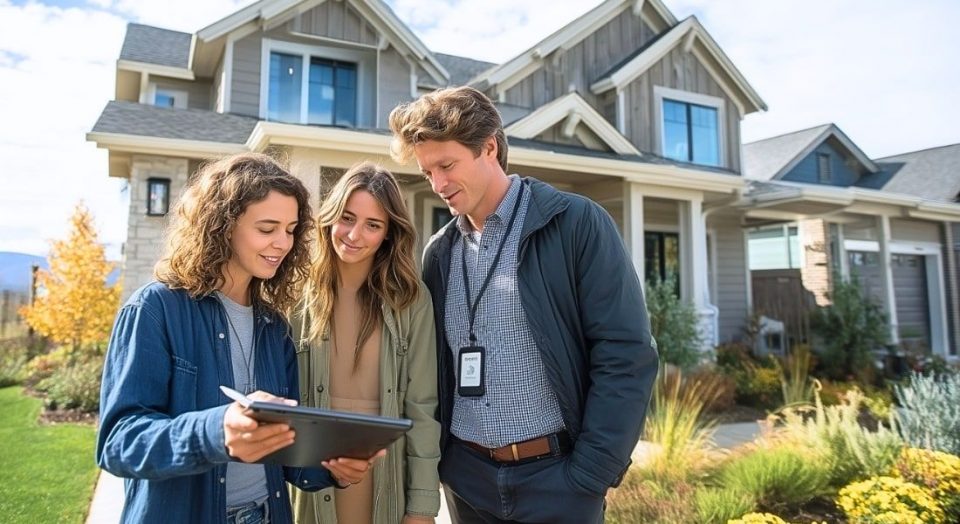Should You Rent or Buy a Home? What First-Time Buyers Need To Know
Deciding whether to rent or buy a home is one of the biggest financial choices first-time buyers will have to face. It’s not just about fitting costs within your monthly budget. It also influences your ability to build wealth, your flexibility, and your lifestyle. With rising rents, higher interest rates, and limited home inventory, many buyers feel stuck.
This guide gives you the facts, local insights, and practical steps to help you decide with confidence.
New River Valley Real Estate Market Watch
As of August 2025, the median listing price in Montgomery County was about $440,000, which is up by roughly 7.3% year-over-year. However, NRV real estate trends are always changing. Contact The Louise Baker Team for help buying and selling homes in Virginia’s New River Valley.
Key Factors To Consider Before Deciding To Rent or Buy a Home
Remember that details matter when weighing the decision to rent or buy a home. Factors such as long-term equity potential, hidden costs, and upfront expenses can shift the balance between renting and owning. Understanding all these will help you see which choice fits your budget and goals better.
1.Purchasing Costs: Down Payments, Mortgage, and Ownership Fees
Buying a home requires more upfront cash than renting. Depending on the loan program you choose, most lenders ask for a down payment of between 3% and 20%. Meanwhile, mortgage rates are currently at 6% to 7%, affecting what you can afford.
Beyond your mortgage, you’ll be facing:
- Property taxes
- Homeowner’s insurance
- Maintenance and repairs (maintain a budget of about 1% to 3% of your home’s value per year for these)
These costs make homeownership a larger financial commitment at the start. However, they also build equity over time.
2.Renting Costs: What You Should Expect Monthly
Renting has fewer upfront costs. You will usually need a security deposit and the first month’s rent. Still, rent is rising steadily and has become a significant concern. More often than not, renters often pay additional expenses such as:
- Utilities
- Renters insurance
- Parking or pet fees
The upside? Renting tends to be more predictable. You won’t get stuck with major repairs or costly maintenance, making it easier to budget month to month.
3. Financial Benefits of Buying a Home
Homeownership remains one of the strongest ways to build long-term wealth. According to national data, homeowners’ median net worth is almost 40 times greater than that of renters.
Owning a home locks in a fixed-rate mortgage, which protects you from future rent hikes. Over five years, many homeowners can build meaningful equity from mortgage payments and home value appreciation. Renters, no matter how long they stay, do not gain ownership or equity.
However, buying is also not without risks. You could take a loss if property values drop or you need to sell quickly. That’s why your time horizon, or how long you plan to stay, and financial readiness are crucial.
4. Lifestyle and Flexibility Considerations
Money matters greatly. However, lifestyle should also carry equal weight.
- Buying tends to make more sense if you plan to stay for five years or more. It provides stability, community ties, and the freedom to personalize your home.
- Renting offers more flexibility. This factor is ideal if you expect career changes, relocations, or lifestyle shifts in the coming years. It will save you from the stress of having to sell your home during these transitions.
- Maintenance is a big difference. As a renter, you won’t have to worry about repair costs. Your landlord will handle those. However, you will also have less control over changes and upgrades.
So think about how your next three to five years may play out before deciding.
5. Financial Readiness You Should Have in Place
Before you buy a house, lenders typically expect you to meet the following specific benchmarks:
- A credit score of at least 620 is required for conventional loans, with higher scores resulting in better rates.
- A debt-to-income ratio of ideally below 43%.
- Down payment savings from 3% to 20% of the purchase price.
- An emergency fund covering at least three to six months of expenses to handle surprises, such as repairs or other unexpected costs.
Renting doesn’t require all these. However, building this financial base prepares you for long-term stability when you decide that buying is the right move for you.
6. Local Programs That Can Help First-Time Buyers
If you are a first-time home buyer in Virginia or feel like buying is out of reach, several programs can help.
- FHA loans (as low as 3.5% down)
- VA loans (0% down for eligible veterans)
- United States Department of Agriculture or USDA loans (0% down in eligible rural areas of NRV)
- Virginia Housing grants and tax credits can help offset closing costs and upfront expenses
Looking into these options can make buying a home more attainable sooner than expected.
What First-Time Buyers Ask About Renting or Buying
How long should I stay in a home for buying to make sense?
At least five years. That gives you enough time for equity growth and to cover upfront costs like closing fees.
Can buying save me money compared to renting?
Yes, often after the first few years. While home ownership adds costs like taxes and maintenance, steady mortgage payments and equity growth can make it more affordable long term.
What if I buy and then need to move within two years?
Selling quickly may mean you lose money due to transaction costs. Renting or short-term leasing might be more sensible if you expect to move soon.
Are there options for buyers with smaller down payments?
Yes. FHA, USDA, and Virginia Housing programs make low or zero-down options possible for eligible first-time buyers.
Partner With The Louise Baker Team in NRV
Choosing whether to rent or buy a home is a deeply personal decision. However, you don’t have to make it alone. The Louise Baker Team offers in-depth knowledge of the New River Valley market. We’ll walk you through financing options, down-payment assistance, local trends, and homes that fit your budget. Our goal is to ensure you feel empowered, informed, and supported.
Ready to explore your options in NRV and beyond? Contact The Louise Baker Team today to begin your home journey with confidence.




